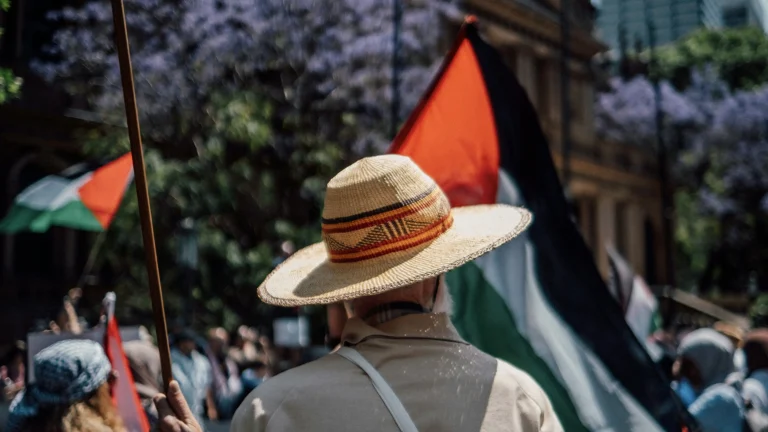Australia’s Restriction on Jewish People Serving in the IDF

Australia’s Restriction on Jewish People Serving in the IDF: What You Need to Know
Australia’s Restriction on Jewish people serving in the IDF have become a controversial issue. While Australia has long had policies around foreign military service, recent developments have raised more questions. The government’s stance on this matter is tied to national security concerns and broader diplomatic relations.
Why the Restrictions?
Australia’s restrictions on Jewish people serving in the IDF are mainly due to concerns about dual loyalty. As the IDF operates in one of the most conflict-prone regions in the world, some Australians may find themselves torn between their allegiance to Israel and their duties as citizens of Australia. This creates a delicate situation for both individuals and the government.
While Australia does not outright ban citizens from joining foreign armies, it places restrictions to ensure that national security is not compromised. In particular, the Australian government wants to prevent situations where an individual’s actions could negatively affect Australia’s relationship with other countries, especially in the Middle East.
Recent Developments: A Family’s Struggle with Bureaucracy
Two Israeli soldiers, Omer and Ella Berger, recently faced bureaucratic delays in traveling to Australia due to Australia’s restrictions on Jewish people serving in the IDF. The siblings, along with other family members, applied for visas two months ago. While the rest of the family quickly received approval, Omer and Ella were told to fill out a 13-page form typically required for military personnel involved in war.
Ella, who had received a week’s leave from her military duties, chose to return to Israel after the delays. Omer, a reservist, remains in Thailand, awaiting a resolution. The family criticized the delays, arguing that they reflect an increasingly antagonistic stance toward Israel amidst the ongoing conflict with Gaza.
Australia’s Department of Home Affairs explained that the additional paperwork is a routine procedure, not specifically targeting Israeli citizens. A spokesperson noted that Australia had approved 11,000 Israeli visas over the past year and emphasized that Israeli applicants receive no special treatment.
Despite this explanation, the form raised concerns. The questions asked Omer and Ella about their roles in detention facilities and whether they had participated in war crimes or genocide. The extensive questions made it seem as though Israeli soldiers were under greater scrutiny than other applicants.
This situation follows a November ruling from the International Criminal Court (ICC), which issued arrest warrants for Israeli leaders, including Prime Minister Benjamin Netanyahu and former Defense Minister Yoav Gallant. The ICC accused them of committing war crimes since October 7th, 2023, further complicating the issue.
Impact on the Jewish Community
For many Jewish Australians, Australia’s restrictions on Jewish people serving in the IDF are deeply troubling. These policies force a difficult choice between supporting Israel, a country with significant cultural and religious ties to the Jewish community, and obeying Australian law.
Many Jewish Australians have a deep connection to Israel. Some view serving in the IDF as an act of solidarity and defense of their ancestral homeland. However, these restrictions limit their ability to fully express that loyalty. This issue has led to an ongoing debate within the Jewish community about the balance between personal identity and national legal requirements.
Diplomatic Considerations
Another reason for Australia’s restrictions on Jewish people serving in the IDF is diplomacy. Australia has longstanding diplomatic ties with Israel but also seeks to maintain good relations with other countries in the Middle East. Countries like Iran and Lebanon, which have opposing views on Israel, may take offense at Australia’s citizens serving in the IDF.
The Australian government tries to avoid any action that might escalate tensions with these nations. By imposing restrictions, Australia aims to protect its international standing and avoid being drawn into regional conflicts.
Legal Implications
Under Australian law, military service abroad is not prohibited, but it is closely monitored. Citizens who choose to serve in the IDF may face legal questions when they return. Australia’s restrictions on Jewish people serving in the IDF are intended to prevent complications related to espionage or activities that could harm Australia’s interests.
Additionally, individuals who serve in foreign armies, especially those involved in active combat, may be scrutinized upon reentry into Australia. The Australian government is concerned about the potential risks of foreign military training and combat experiences influencing individuals’ behavior.
Jewish Australians’ Perspective
The perspective of Jewish Australians on Australia’s restrictions on Jewish people serving in the IDF is varied. Some see the law as an unfair restriction on their freedom to serve their homeland. Others accept it as part of their duty as Australian citizens.
There are Jewish Australians who feel a strong duty to protect Israel, particularly in the context of the ongoing Israeli-Palestinian conflict. However, there are also those who prioritize their citizenship in Australia, understanding that the nation’s laws must come first.
Conclusion: A Complex Issue
In conclusion, Australia’s Restriction on Jewish people serving in the IDF reflect a complex blend of national security concerns, diplomatic relations, and personal identity. For Jewish Australians, it raises difficult questions about loyalty, duty, and belonging.
These restrictions are not likely to change soon. However, as Australia’s foreign policy continues to evolve, the debate surrounding this issue will likely persist. Ultimately, the question of military service abroad remains a challenging issue for both individuals and the government.
Photo by Nikolas Gannon

